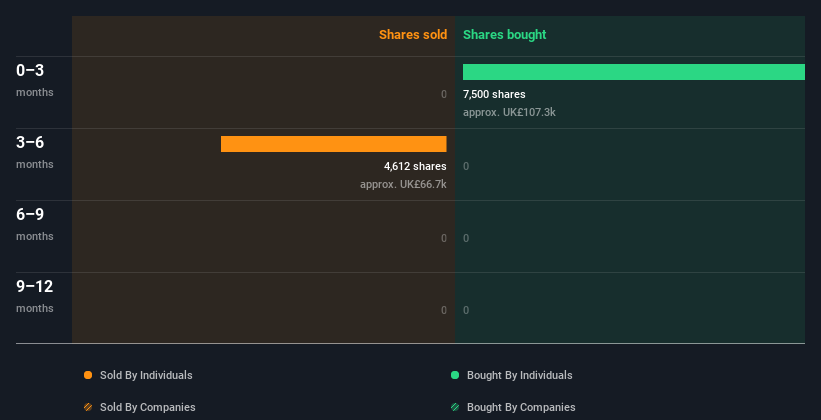A Prudential plc (LON:PRU) insider increased their holdings last year
From what we can see, insiders were net buyers in Prudential plc's (LON:PRU ) during the past 12 months. That is, insiders acquired the stock in greater numbers than they sold it.
While insider transactions are not the most important thing when it comes to long-term investing, we would consider it foolish to ignore insider transactions altogether.
See our latest analysis for Prudential
Prudential Insider Transactions Over The Last Year
Over the last year, we can see that the biggest insider purchase was by insider Sock Koong Chua for UK£107k worth of shares, at about UK£14.31 per share. That means that an insider was happy to buy shares at above the current price of UK£12.74. While their view may have changed since the purchase was made, this does at least suggest they have had confidence in the company's future. To us, it's very important to consider the price insiders pay for shares. Generally speaking, it catches our eye when an insider has purchased shares at above current prices, as it suggests they believed the shares were worth buying, even at a higher price. Sock Koong Chua was the only individual insider to buy during the last year.
The chart below shows insider transactions (by companies and individuals) over the last year. If you click on the chart, you can see all the individual transactions, including the share price, individual, and the date!
There are plenty of other companies that have insiders buying up shares. You probably do not want to miss this free list of growing companies that insiders are buying.
Does Prudential Boast High Insider Ownership?
Many investors like to check how much of a company is owned by insiders. Usually, the higher the insider ownership, the more likely it is that insiders will be incentivised to build the company for the long term. Prudential insiders own about UK£32m worth of shares. That equates to 0.09% of the company. We've certainly seen higher levels of insider ownership elsewhere, but these holdings are enough to suggest alignment between insiders and the other shareholders.
So What Do The Prudential Insider Transactions Indicate?
It's certainly positive to see the recent insider purchase. And the longer term insider transactions also give us confidence. When combined with notable insider ownership, these factors suggest Prudential insiders are well aligned, and that they may think the share price is too low. So while it's helpful to know what insiders are doing in terms of buying or selling, it's also helpful to know the risks that a particular company is facing. Case in point: We've spotted 1 warning sign for Prudential you should be aware of.
Of course, you might find a fantastic investment by looking elsewhere. So take a peek at this free list of interesting companies.
For the purposes of this article, insiders are those individuals who report their transactions to the relevant regulatory body. We currently account for open market transactions and private dispositions, but not derivative transactions.
Have feedback on this article? Concerned about the content? Get in touch with us directly. Alternatively, email editorial-team (at) simplywallst.com.
This article by Simply Wall St is general in nature. We provide commentary based on historical data and analyst forecasts only using an unbiased methodology and our articles are not intended to be financial advice. It does not constitute a recommendation to buy or sell any stock, and does not take account of your objectives, or your financial situation. We aim to bring you long-term focused analysis driven by fundamental data. Note that our analysis may not factor in the latest price-sensitive company announcements or qualitative material. Simply Wall St has no position in any stocks mentioned.

 Yahoo Finance
Yahoo Finance 
